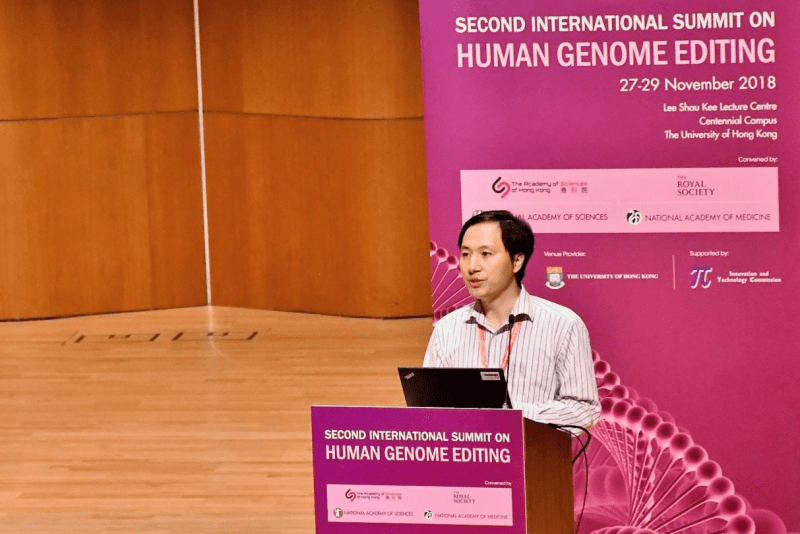A court in China sentenced a former Stanford postdoctoral fellow, who announced last November that he had created the first genetically edited babies, to three years in prison on Monday for conducting “illegal medical practice,” according to Chinese state media.
At the International Genome Editing Summit (IGES) in Hong Kong, He Jiankui claimed to have edited the genomes of two twin baby girls to make them genetically resistant to HIV. Xinhua, China’s official news agency, disclosed for the first time on Monday that his work was also carried out on a third baby.
He has offered no public proof that he successfully genetically edited the embryos. The practice is illegal in several nations, including the United States. Although China has no laws prohibiting human genetic editing, many researchers oppose such work.
During the trial, He pled guilty to “knowingly violat[ing] the country’s regulations and ethical principles to conduct gene editing in assisted reproductive medicine,” Xinhua wrote.
He forged an ethical review certificate in order to recruit eight couples in which the man was HIV-positive, prosecutors said. He has said he used the Crispr-Cas9 editing technique on embryos created through in vitro fertilization to disable a gene the HIV virus uses to enter cells.
Bai Hua, the leader of an AIDS advocacy group that helped He recruit the couples, told The New York Times that he does not know where the babies are now. Bai has said he regrets helping He and felt “deceived” by the researcher.
Monday’s sentencing was a surprise announcement from a trial that was closed to the public. The court, located in the southern city of Shenzhen, closed the trial in order to protect the privacy of the individuals involved, according to The Times.
In addition to his prison sentence, He was fined 3 million yuan, equivalent to $430,000. Two Chinese scientists who pled guilty alongside him, Zhang Renli and Qin Jinzhou, were fined and sentenced to two years and a suspended sentence of 18 months in prison, respectively.
Although none have been charged, American scientists associated with He have come under scrutiny, including three Stanford faculty: applied physics and bioengineering professor Stephen Quake B.S. ’91, bioethics professor William Hurlbut ’68 M.D. ’74 and pediatrics professor Matthew Porteus M.D. ’94 Ph.D. ’94.
Emails between He and Quake, published in April by The Times, show that He kept his former research advisor updated on milestones in his experiments, including the pregnancy and “success[ful]” birth of the twin girls. But they also show that Quake urged He to stop pursuing the project.
Hurlbut and Porteus were also in contact with He and had varying degrees of knowledge about his progress. All three received several visits from He over the past couple of years.
One day after the publication of He and Quake’s emails, Stanford announced that its two-month investigation into ties between its faculty and He found no direct involvement, clearing the three faculty members of all wrongdoing.
“The review found that the Stanford researchers expressed serious concerns to Dr. He about his work,” the statement reads. “When Dr. He did not heed their recommendations and proceeded, Stanford researchers urged him to follow proper scientific practices, which included identifying an unmet medical need, securing informed consent, obtaining Institutional Review Board (IRB) approval and publishing the research in a peer-reviewed journal.”
Last December, Hurlbut told The Daily that he and Porteus had pushed He to consider the ethical implications of his research.
“I personally gave him very strong reasons not to do this,” Hurlbut said, “and I know that Porteus talked to him [at Stanford] … and was very critical of the idea.”
Contact Erin Woo at erinkwoo ‘at’ stanford.edu.
